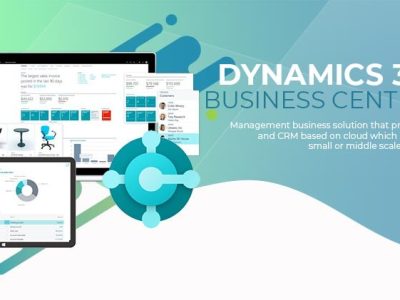In today’s fast-paced manufacturing industry, businesses need robust tools to streamline operations, improve efficiency, and stay competitive. Microsoft Dynamics 365 Business Central offers a powerful Manufacturing Module designed to meet these needs. This blog explores the key features of the Business Central Manufacturing Module, how they benefit businesses, and why this solution is a game-changer for manufacturers.
What is Dynamics 365 Business Central?
Dynamics 365 Business Central is an all-in-one business management solution that helps organizations streamline their financials, operations, sales, and customer service. For manufacturers, the Manufacturing Module is a critical component, offering tools to manage production, inventory, supply chains, and more.
Why Choose Business Central for Manufacturing?
Manufacturers face unique challenges, such as complex production processes, fluctuating demand, and the need for real-time data. Business Central’s Manufacturing Module addresses these challenges with features like:
End-to-end production management
Real-time inventory tracking
Advanced planning and scheduling
Seamless integration with other Microsoft tools
Let’s dive deeper into the features that make Business Central a top choice for manufacturers.
Key Features of Business Central Manufacturing Module
1. Production Order Management
The Manufacturing Module allows businesses to create and manage production orders efficiently. Key functionalities include:
Multi-level production orders: Handle complex manufacturing processes with ease.
Work-in-progress (WIP) tracking: Monitor the status of production in real-time.
Automatic order generation: Reduce manual effort by automating order creation based on demand.
2. Bill of Materials (BOM) Management
A Bill of Materials (BOM) is essential for manufacturing. Business Central offers:
Multi-level BOMs: Manage intricate product structures.
Version control: Track changes and updates to BOMs.
Cost calculation: Automatically calculate production costs based on BOM data.
3. Capacity Planning and Scheduling
Efficient resource allocation is critical for manufacturers. Business Central provides:
Machine and labor scheduling: Optimize resource utilization.
Real-time capacity updates: Adjust schedules based on availability.
Drag-and-drop scheduling: Simplify planning with an intuitive interface.
4. Inventory Management
Accurate inventory management is crucial for manufacturing success. Features include:
Real-time inventory tracking: Monitor stock levels across multiple locations.
Batch and serial number tracking: Ensure traceability and compliance.
Automated replenishment: Reorder materials based on predefined thresholds.
5. Demand Forecasting
Predicting demand accurately helps manufacturers avoid overproduction or stockouts. Business Central offers:
AI-powered forecasting: Leverage machine learning for accurate predictions.
Historical data analysis: Use past trends to inform future decisions.
Scenario planning: Test different demand scenarios to prepare for uncertainties.
6. Shop Floor Integration
Integrating shop floor operations with the ERP system improves efficiency. Key features include:
Machine data integration: Connect IoT devices for real-time monitoring.
Production reporting: Generate detailed reports on shop floor activities.
Quality control: Track and manage quality checks during production.
7. Costing and Financial Management
Manufacturers need precise cost control to maintain profitability. Business Central provides:
Standard and actual costing: Compare planned vs. actual costs.
Cost roll-up: Automatically calculate total production costs.
Financial integration: Sync manufacturing data with financial modules.
8. Quality Assurance
Ensuring product quality is a top priority. Features include:
Quality control plans: Define and enforce quality standards.
Non-conformance tracking: Identify and address defects quickly.
Supplier quality management: Monitor and improve supplier performance.
9. Reporting and Analytics
Data-driven decision-making is essential for manufacturers. Business Central offers:
Customizable dashboards: Tailor reports to your needs.
Real-time analytics: Access up-to-date insights.
Power BI integration: Create advanced visualizations and reports.
10. Integration with Microsoft Ecosystem
Business Central seamlessly integrates with other Microsoft tools, such as:
Power Platform: Automate workflows and build custom apps.
Microsoft 365: Collaborate effectively with tools like Teams and Outlook.
Azure IoT Hub: Connect and manage IoT devices for smart manufacturing.
Benefits of Using Business Central Manufacturing Module
1. Improved Efficiency
By automating processes and providing real-time data, Business Central helps manufacturers reduce waste, optimize resources, and improve overall efficiency.
2. Enhanced Visibility
With centralized data and advanced reporting, businesses gain full visibility into their operations, enabling better decision-making.
3. Scalability
Business Central grows with your business, making it suitable for small manufacturers and large enterprises alike.
4. Cost Savings
Accurate costing, inventory management, and demand forecasting help manufacturers reduce costs and improve profitability.
5. Compliance and Traceability
Features like batch tracking and quality control ensure compliance with industry regulations and standards.
Real-World Use Cases
1. Automotive Manufacturing
An automotive parts manufacturer used Business Central to streamline production, reduce lead times, and improve inventory accuracy.
2. Food and Beverage Industry
A food processing company leveraged Business Central’s quality control features to ensure compliance with safety standards and reduce waste.
3. Electronics Manufacturing
An electronics manufacturer integrated Business Central with IoT devices to monitor machine performance and prevent downtime.
How to Get Started with Business Central Manufacturing Module
1. Assess Your Needs
Identify your manufacturing challenges and goals to determine which features are most important.
2. Partner with an Expert
Work with a Microsoft partner to implement and customize Business Central for your business.
3. Train Your Team
Ensure your team is trained to use the system effectively.
4. Monitor and Optimize
Continuously monitor performance and make adjustments to maximize the benefits.
Conclusion
The Business Central Manufacturing Module is a powerful tool for manufacturers looking to streamline operations, improve efficiency, and stay competitive. With features like production order management, capacity planning, and real-time analytics, it addresses the unique challenges of the manufacturing industry. By leveraging this solution, businesses can achieve greater visibility, scalability, and cost savings.
Whether you’re a small manufacturer or a large enterprise, Business Central offers the tools you need to succeed in today’s dynamic market. Ready to transform your manufacturing operations? Explore Business Central today!







